Published: 20 Feb 2025, 05:40 am

On this day, February 20, we celebrate the birth of one of the most influential writers in science fiction and horror history—Richard Matheson. Born in 1926, Matheson left an indelible mark on literature, film, and television with his imaginative storytelling, psychological depth, and visionary themes. His works, including I Am Legend and The Shrinking Man, have shaped the genres of horror, science fiction, and fantasy, influencing generations of writers and filmmakers.
Richard Burton Matheson was born in Allendale, New Jersey, to Norwegian immigrant parents. Raised in Brooklyn, he discovered a love for storytelling at an early age, drawing inspiration from adventure and fantasy stories. His fascination with science fiction and the macabre intensified during his service in World War II, an experience that later influenced his themes of isolation, existential dread, and human resilience.
After the war, Matheson earned a journalism degree from the University of Missouri, but his true calling lay in fiction. He began his literary career in the early 1950s, quickly making a name for himself with short stories that combined science fiction with psychological horror. His breakthrough story, Born of Man and Woman (1950), published in The Magazine of Fantasy & Science Fiction, set the tone for a career defined by unsettling and thought-provoking narratives.
Matheson’s 1954 novel I Am Legend remains one of his most significant works, redefining the vampire mythos and laying the groundwork for the modern zombie genre. The novel follows Robert Neville, the last survivor of a global pandemic that transforms humans into nocturnal creatures. Through Neville’s struggle for survival and his scientific efforts to understand the disease, Matheson explores themes of isolation, fear, and the shifting nature of morality.
The book has inspired numerous adaptations, including The Last Man on Earth (1964), The Omega Man (1971), and the blockbuster I Am Legend (2007), starring Will Smith. Matheson’s depiction of a post-apocalyptic world continues to resonate, influencing everything from George A. Romero’s Night of the Living Dead to modern dystopian fiction.
Another landmark in Matheson’s career was The Shrinking Man (1956), a novel that blends science fiction with existential horror. The story follows Scott Carey, a man who begins to shrink after exposure to a mysterious mist. As he diminishes in size, his world transforms into a terrifying and alien landscape, with everyday objects becoming life-threatening obstacles.
The novel’s adaptation, The Incredible Shrinking Man (1957), remains a sci-fi classic, lauded for its special effects and philosophical depth. Matheson’s ability to blend personal struggle with cosmic horror made this work stand out as one of the finest explorations of human vulnerability.
Beyond literature, Matheson left a lasting legacy in film and television. His work with The Twilight Zone in the late 1950s and early 1960s cemented his reputation as a master of the strange and uncanny. Episodes such as Nightmare at 20,000 Feet, starring William Shatner, and Steel remain fan favorites, showcasing his knack for suspense and twist endings.
Matheson also wrote screenplays for Hollywood, including adaptations of Edgar Allan Poe’s works for director Roger Corman, such as House of Usher (1960) and The Pit and the Pendulum (1961). His television movie Duel (1971), directed by a young Steven Spielberg, became a cult classic, setting the stage for Spielberg’s illustrious career.
Richard Matheson’s influence extends far beyond his own works. Stephen King has cited Matheson as a key inspiration, calling him “the author who influenced me most as a writer.” His ability to blend psychological realism with speculative fiction has shaped the horror and science fiction genres, influencing writers such as George R.R. Martin, Anne Rice, and Clive Barker.
Matheson’s contributions have been recognized with numerous accolades, including the Bram Stoker Award for Lifetime Achievement, the World Fantasy Award, and an induction into the Science Fiction Hall of Fame. His stories continue to be adapted into films, television shows, and comics, ensuring his presence in popular culture remains strong.
Matheson passed away on June 23, 2013, at the age of 87, leaving behind a legacy that continues to inspire and entertain. His stories, filled with existential dread, scientific wonder, and deep psychological insight, remain as relevant today as when they were first written.
As we commemorate his birthday, we remember Richard Matheson not just as a writer but as a visionary who forever changed the landscape of science fiction and horror. His works remind us of the thin line between the known and the unknown, the ordinary and the extraordinary—a legacy that ensures his place in literary history for generations to come.
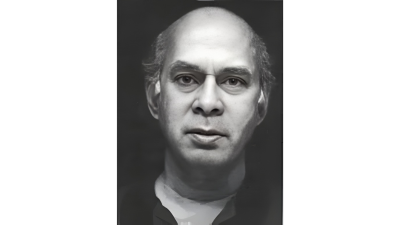
Rashid Karim is remembered as one of the most influential prose writers in Bengali literature. Poet...
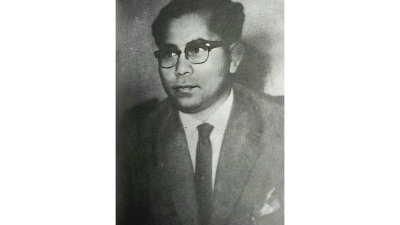
In the history of Bangla language and literature, Muhammad Abdul Hai stands as a radiant star whose...

Today, 26 November, marks the death anniversary of Abul Hasan—one of the brightest, most fire-spirit...

Begum Sufia Kamal holds an indispensable place in Bengali literature, the Liberation War, the women'...
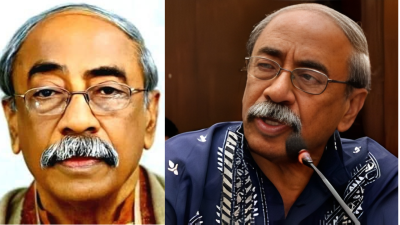
Shahriar Kabir—A brilliant and courageous figure in the fields of literature, journalism, human righ...
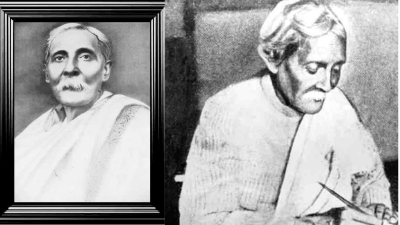
Acharya Dr. Dinesh Chandra Sen remains a shining star in the firmament of Bengali language and liter...
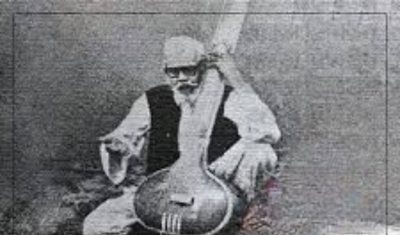
The name Ustad Alauddin Sarkar evokes the image of a visionary figure in the music heritage of the s...